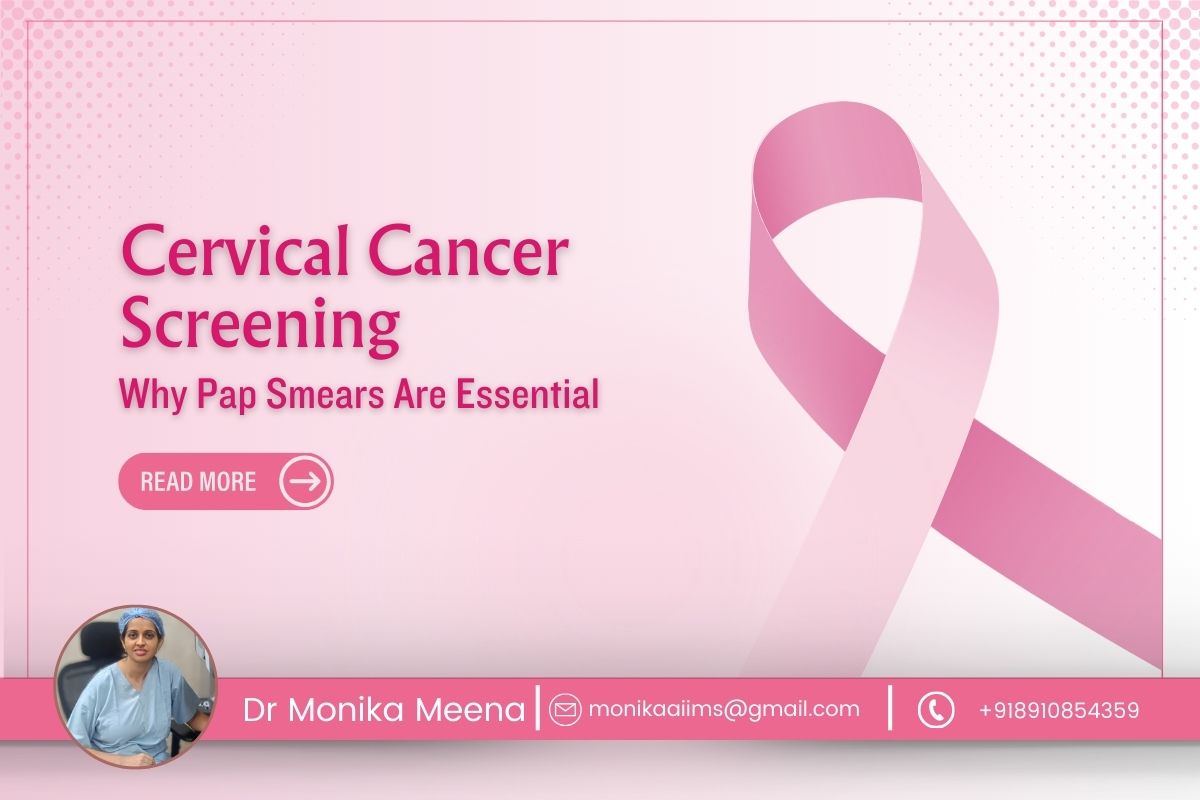
Did you know that cervical cancer has been a leading cause of cancer-related deaths among women, but regular screening can significantly reduce its impact? However, a Pap smear is one of the most effective tools for early detection of cervical cancer. Consulting a skilled gynaecologic oncologist in Kolkata ensures proper screening and preventive care. In today’s blog, let’s explore more about a Pap smear test and its relevance for the screening of cervical cancer –
What is a Pap Smear?
A Pap smear is a simple medical test that detects abnormal cells in the cervix, the lower part of the uterus in a woman’s body. However, these abnormalities, if caught early, can be treated before they progress into cervical cancer.
Why Are Pap Smears Essential?
- Early Detection Saves Lives
First of all, early detection is key to fighting cervical cancer. However, regular Pap smears can identify precancerous changes before symptoms arise, increasing the chances of successful treatment. - Detects HPV Infections
Secondly, it is also important to note that Human Papillomavirus (HPV) is the leading cause of cervical cancer. A Pap smear can detect cell changes caused by HPV, helping doctors take necessary preventive measures. - Prevents Advanced Disease
Last but not least, when detected in its early stages, cervical cancer is highly treatable. Therefore, a routine Pap smear ensures timely intervention, reducing the need for more complex treatments like robotic surgery.
Who Should Get a Pap Smear?
- Women aged between 21 and 65 are mainly recommended to undergo Pap smears every three years.
- Women over 30 can opt for a combined Pap smear and HPV test every five years.
- High-risk women, including those with a family history of cervical cancer, should consult a gynaecologic oncologist in Kolkata for personalized screening schedules.
The Role of Robotic Surgery in Cervical Cancer Treatment
Nowadays, with the advancement of medical science and technology, if cervical cancer is detected, advanced treatments like robotic surgery offer precision and faster recovery. However, a robotic surgery specialist in Kolkata can provide cutting-edge care with minimal side effects.
Tips for a Successful Pap Smear
- Always schedule the test when you are not on your period.
- Strictly avoid douching, using tampons, or having intercourse 48 hours before the test.
- Choose a trusted female gynaecologist in Kolkata to ensure a comfortable experience.
To conclude, it can be said that cervical cancer screening through Pap smears is highly essential for safeguarding women’s health. Early detection, prevention of advanced disease, and effective treatment options like robotic surgery make regular screenings vital. If you are due for a Pap smear or need expert care, consult a reliable gynaecologic oncologist in Kolkata. Because your health deserves the best care and timely attention for maintaining a quality life ahead.
Also read: https://drmonikameena.com/prevention-of-cervical-cancer-protecting-womens-health/
Meet Dr Monika Meena

Dr Monika is an expert trained robotic gynae surgeon, oncosurgeon in Kolkata. Her main interest lies in robotic and minimal invasive gynaecology. She has the highest robotic cases to her credit amongst the female gynecologists in east India.
Read More









